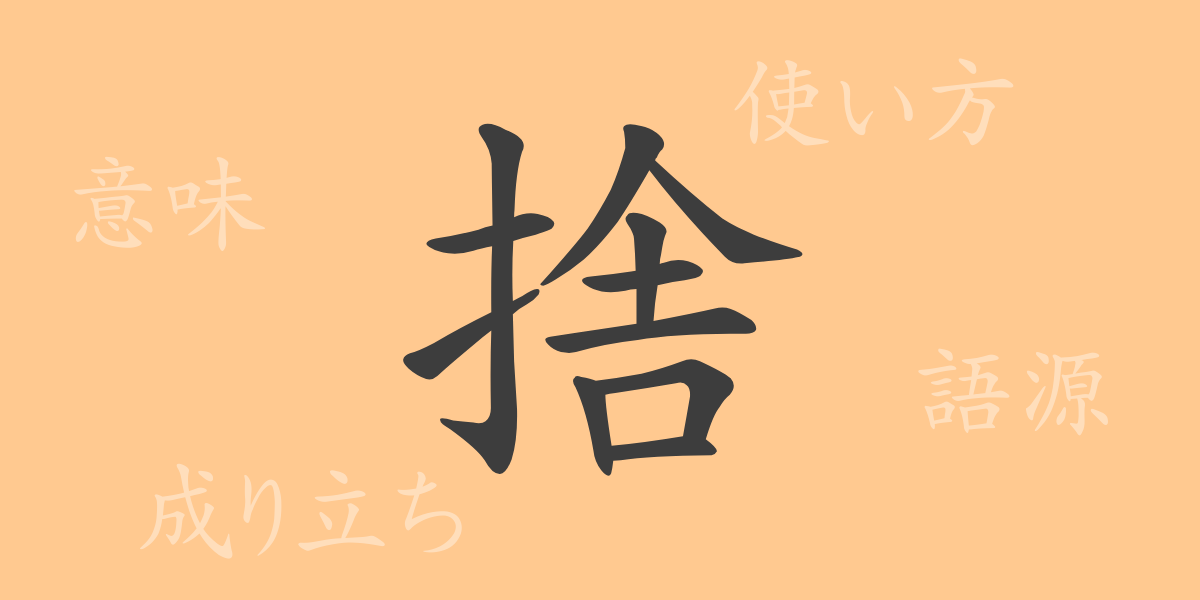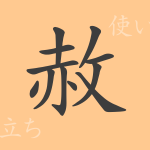The beauty of the Japanese language is reflected in its delicate characters. Each kanji character holds deep meanings and reflects Japanese culture and history. The kanji “捨(すてる)” is a word frequently used in our daily lives, but understanding its origins and meanings can further enrich our appreciation of the language. In this article, we will explore the origins, meanings, uses, readings, and related idioms of the kanji “捨(すてる)” to reveal its full scope.
Origins of 捨(すてる) (Etymology)
The kanji “捨(すてる)” is composed of the “扌(てへん),” representing a hand, and “舎(やしろ),” which means to discard. In ancient China, this kanji was created to symbolize the act of letting go of something from one’s hand, thus “to discard.” Over time, this kanji has evolved to include not only the physical act of discarding but also the psychological act of abandonment.
Meanings and Uses of 捨(すてる)
The kanji “捨(すてる)” means “to discard,” “to abandon,” and “to forsake.” These meanings all relate to the act of letting go or distancing oneself from something deemed unnecessary. It can be used in various contexts, such as discarding things (“ごみを捨てる” – to throw away garbage), letting go of emotions (“恨みを捨てる” – to let go of grudges), and forsaking people (“友を見捨てる” – to abandon a friend).
Readings, Stroke Count, and Radical of 捨(すてる)
The kanji “捨(すてる)” has several important characteristics.
- Readings: The on’yomi (音読み) is “シャ,” and the kun’yomi (訓読み) is “す.てる.”
- Stroke count: The total number of strokes is 12.
- Radical: The radical is “扌(てへん),” which represents a hand.
Idioms, Phrases, and Proverbs Using 捨(すてる)
There are many idioms, phrases, and proverbs that include the kanji “捨(すてる).” For example, “捨身(しゃしん)” means to devote oneself selflessly, reflecting a spirit of selflessness. “情を捨てる(じょうをすてる)” means to suppress emotions, and “見捨てる(みすてる)” means to abandon someone in need. Additionally, the proverb “捨てる神あれば拾う神あり(すてるかみあればひろうかみあり)” teaches that for every misfortune, there is a corresponding good fortune.
Conclusion on 捨(すてる)
The kanji “捨(すてる)” represents not only the act of discarding but also the psychological concept of abandonment and selflessness. Its usage in Japanese varies depending on the context, allowing for rich expressions. Through this article, we hope to deepen your understanding of the various aspects of “捨(すてる)” and help you appreciate the depth of the Japanese language.

























